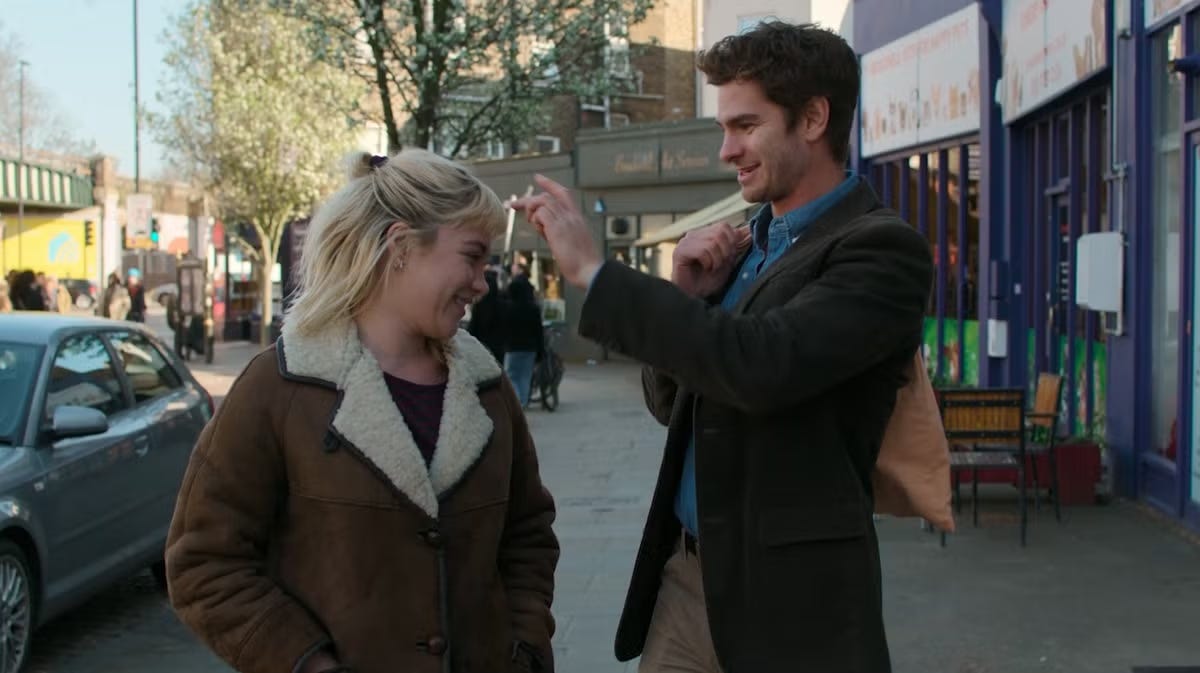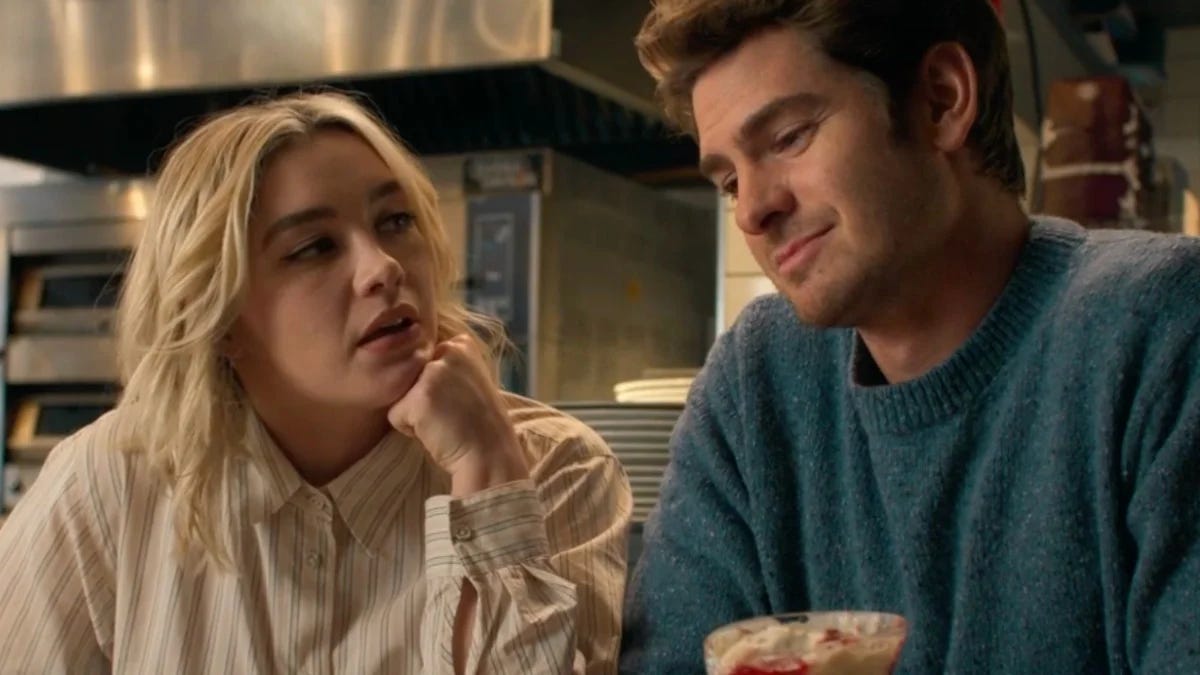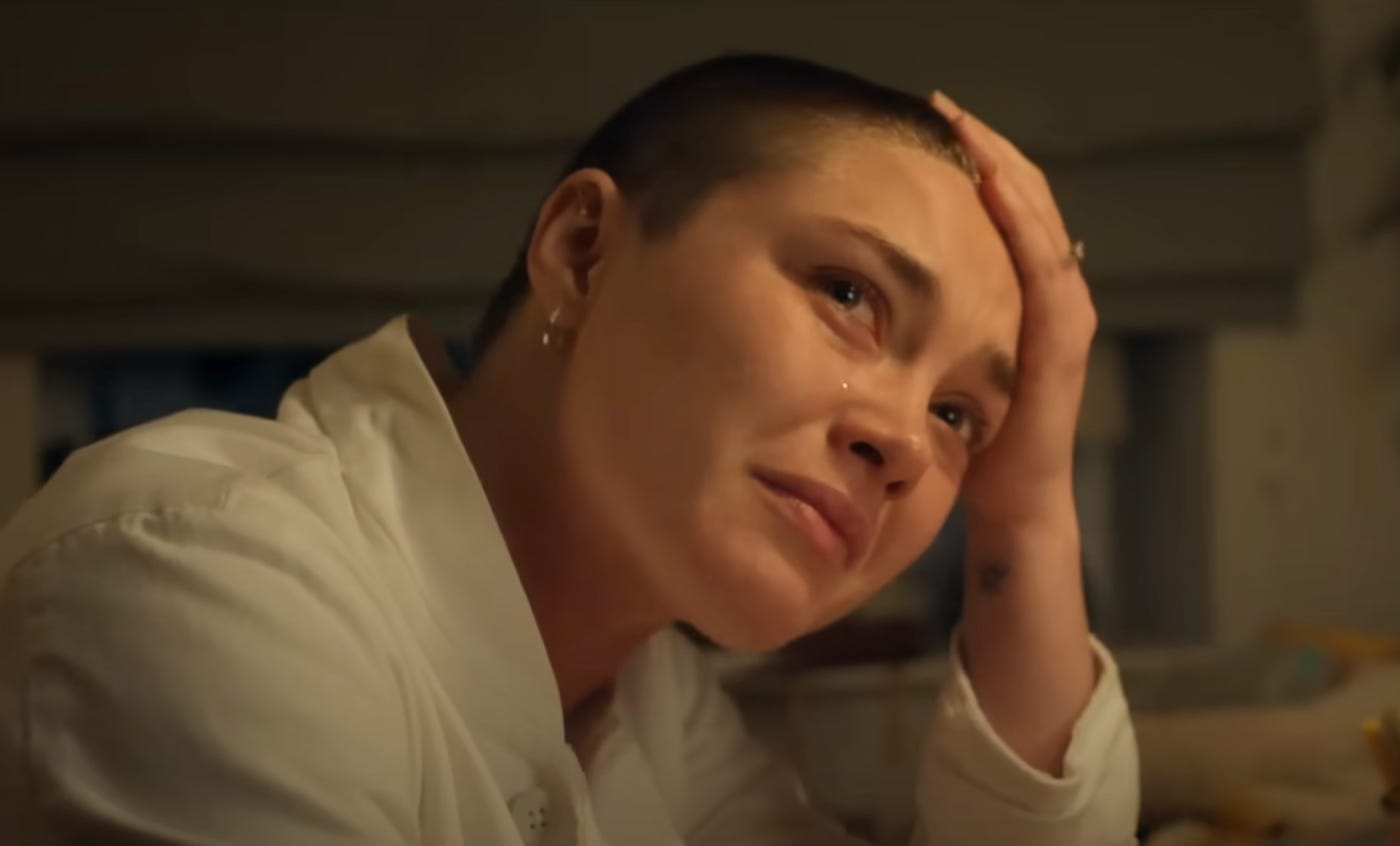Florence Pugh and Andrew Garfield star in a romance-end-of-life tale set in London. This isn’t a selling point that would indicate poor quality. However, the execution of the work itself is a reminder that competent actors can’t salvage a film that's tainted with a tone of overbearing, fluffy sentimentality that results in an insufferable viewing experience.
Tobias (Garfield) a Weetabix employee ends up in hospital after being struck by a car as he walks onto a busy road to pick up a pen. Almut (Pugh), the driver of the car, sits with him in the hospital until he awakens. She apologises for running him over, to which Tobias reassures her that there are no bad feelings. They then share some ice cream in a nearby dessert cafe moments later. This encounter leads to the pair falling in love and eventually having a child together. However, later down the line, Almut is diagnosed with stage three ovarian cancer which disrupts the couple’s happy-as-larry way of being.
The circumstances in which Almut and Tobias meet indicate what sort of film you’re being fed. We Live in Time feels like a representation of life that doesn’t correlate with the reality that we’re accustomed to. These characters' actions and responses to everyday interactions radiate inauthenticity, leaving us unable to view Almut and Tobias as genuine human beings that we can get emotionally involved in, to the extent that we don’t believe they’re in love. Their relationship feels like a performance, much like the other events in the film that have you wondering to what extent the screenwriter lacks life experience.
Such events include Tobias going to a shop in a dressing gown. Why doesn’t he just get dressed to go to the shops? And why walk onto a busy road with fast-moving traffic to pick up a pen? There’s also a bizarre scene where Tobias interrupts a baby shower at which Almut is a guest, to declare his feelings for her in front of a group of women celebrating the soon-to-be arrival of a new being into the world. The women don’t seem to mind this display of narcissism. It soon becomes clear that the world must revolve around this insufferable couple.
One of the most extreme examples of this worldview takes place when Almut goes into labour. Tobias insists on driving her to the hospital, even if that means crashing into the back of someone else’s car to get out of an awkwardly parked space. Stuck in traffic and near a petrol station, Almut and Tobias decide to abandon the car to get some refreshments. Almut uses the toilet in the station, only to find herself being locked in while about to give birth to the child, leading the only two staff members to abandon the shop floor to dedicate their focus to delivering the baby. All the while, drivers on the road presumably wait patiently for the couple to return to their abandoned car.
You may think that this wet romantic tone would die down when the focus shifts to cancer. However, We Live in Time refrains from moving towards bleak territory and remains in the light. Everything feels as though it's required to be romantic, even the cancer. During the doctor appointments where Tobias accompanies Almut, she puts on a brave face insisting she’s ok, to which the doctor tells her “It’s okay not to be ok” and gets out a box of celebration chocolates and hands them out. It's in moments such as these where you realise you aren’t watching drama but instead a fantasy.
Despite the negatives outlined, there is a rare moment of engagement and warmth when Almut seeks to achieve her ambitions, taking her career as a chef a step further by entering into a major cooking competition in an effort to be remembered after her death. You root for her, motivated more so by Tobias’s selfish reaction in which he attempts to deprive his wife of realising her ambition, reminding her she shouldn’t be undergoing such activity when ill. It’s a struggle to endure such a character who's this narcissistic and wet.
We Live in Time may have had more redeeming features if this overdose of sentimentalism had been removed. Garfield and Pugh’s performances suffer as a result of being restricted to the committed style. There is an existing market for this type of film that indulges in the fantastical portrayal of reality. However, these works never seem to latch onto cinematic legacy, most likely due to their inability to capture something genuine about existence. There won’t be much time until We Live in Time gets forgotten.
Out in UK cinemas 1st January 2025







